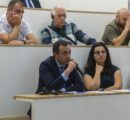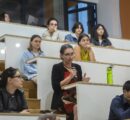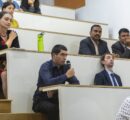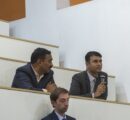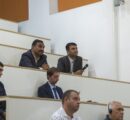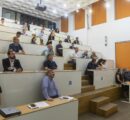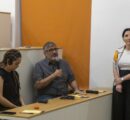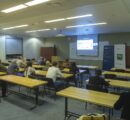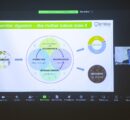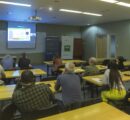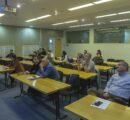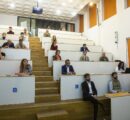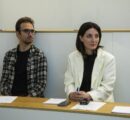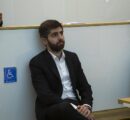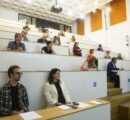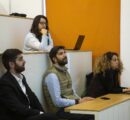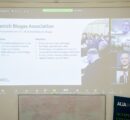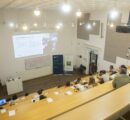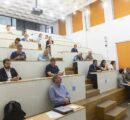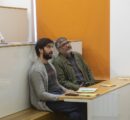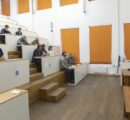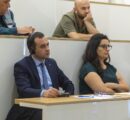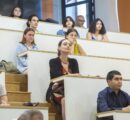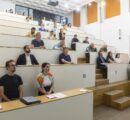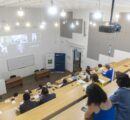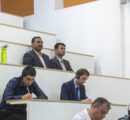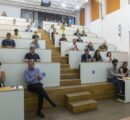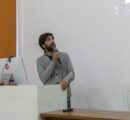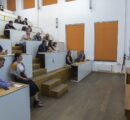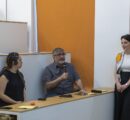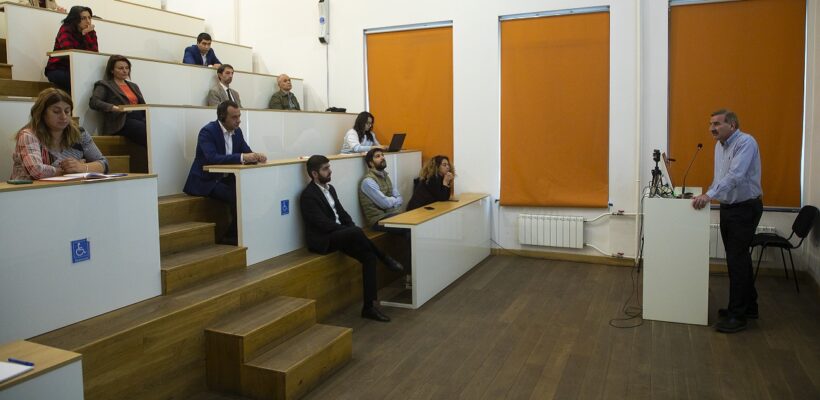
AUA Energy Transitions for Climate Solutions: World-Leader Denmark’s Experience With Biowaste/Biogas
3 min readYEREVAN, Armenia— In September and October 2023, the American University of Armenia’s (AUA) Energy Transitions for Climate Solutions (Energy4Climate) initiative, in collaboration with the Royal Danish Embassy in Tbilisi, organized a series of talks on biowaste and biogas by renowned Danish organizations, which are global leaders in the sector.
Energy4Climate, a collaborative initiative between the Entrepreneurship and Product Innovation Center at AUA (EPIC) and the AUA Acopian Center for the Environment, disseminates knowledge and raises awareness on alternative energy topics among policy makers, private sector entities, civil society, and educational institutions. Its overarching goal is to guide Armenia’s transition to sustainable energy, promote technological innovation and advancement in the sector, and enhance energy security.
The series of organized talks revolved around the experience of Denmark in biowaste and biogas. Through three successive lectures, Danish experts introduced the local audience to Nature Energy, a large multinational firm (recently acquired by Shell), Biogas Danmark, the biogas trade association of Denmark, and Renew Energy, a biogas design and engineering firm. The attendees at the event included representatives from Armenia’s relevant government agencies, the Yerevan Municipality, businesses, academic institutions, international donor organizations, and civil society.
The first talk, titled “Nature Energy — Pioneering a Sustainable Future by Turning Waste Into Value: Our Vision, Mission & Business Model,” was held on September 19. The event commenced with welcoming remarks by EPIC Director Dr. Michael Kouchakdjian and the Deputy Head of Mission of the Embassy of Denmark in Georgia, Anders Trelborg. Next was Tobias Kvorning, corporate affairs manager of Nature Energy, who introduced the company’s strategy, vision, and business model and explained how these could be replicated outside of Denmark. He also shared Nature Energy’s experience in drafting legislation, further elucidating the policies necessary for promoting biogas production.
On October 12, the second talk, “The Danish Biogas Model: Renewable Gas Based on Circular Economy,” was held by Biogas Denmark, which works for the entire biogas value chain and includes multiple facets, from the utilization of animal manure and organic residues from agriculture, households, and industry to the production and use of biogas and green manure. The presentation by Bruno Sander Nielsen, COO of Biogas Denmark, featured a brief overview of the Danish biogas sector development over the last 30 years: feedstock; use of residues from agriculture, industry, and households to produce renewable gas (biogas) and fertilizers; incentives in different sectors; and projections for future development. “Biogas production has numerous benefits. Among them are reduced greenhouse gas emissions from agriculture and energy, storable renewable energy, jobs in construction, as well as management and maintenance, reduced leaching of nitrates, recirculation of nutrients, and more,” Nielsen elaborated.
The third and final talk was by Renew Energy, which has been working with bioenergy, biogas, and biorefineries for more than 30 years and takes pride in providing fully circular and sustainable solutions. The company strives to offer economically and environmentally attractive bioenergy production solutions that reduce dependence on fossil fuels. The presentation by Renew Energy CEO Morten Enzo Gyllenborg, titled “Renew Energy: Biogenic Energy and Recirculation,” covered the company’s background, business model, target market, and value chain, among other topics. Gyllenborg also provided an overview of the market inside and outside the EU, together with an explanation of the business culture bias. “Denmark has become a leader in biogas production, which now accounts for 40% of the country’s national gas demand. The goal is, of course, 100% biogas in the gas grid — and that’s realistic,” he asserted.
The presentations were followed by discussions moderated by AUA Acopian Center’s waste and circular economy expert Harutyun Alpetyan. During these, the participants learned more about the Danish experience in drafting legislation and policies necessary for biogas production, the potential to replicate the Danish business model in Armenia, and related topics.
The AUA Acopian Center for the Environment, a research center of the American University of Armenia (AUA), promotes the protection and restoration of the natural environment through research, education, and community outreach. The AUA Acopian Center’s focus areas include sustainable natural resource management, biodiversity protection and conservation, greening the built environment, sustainable energy, as well as information technology and the environment. Visit http://ace.aua.am.
The Entrepreneurship and Product Innovation Center (EPIC) is a platform of the American University of Armenia (AUA) for promoting entrepreneurial education, cross-disciplinary collaboration, and startup venture incubation. EPIC provides an ecosystem for emerging entrepreneurs consisting of first-class facilities and collaborative workspace, programs and events, and a network of mentors, advisors, and investors. EPIC fosters the understanding and application of entrepreneurship in students and faculty at AUA to craft high-impact multidisciplinary ventures. Visit https://epic.aua.am/

